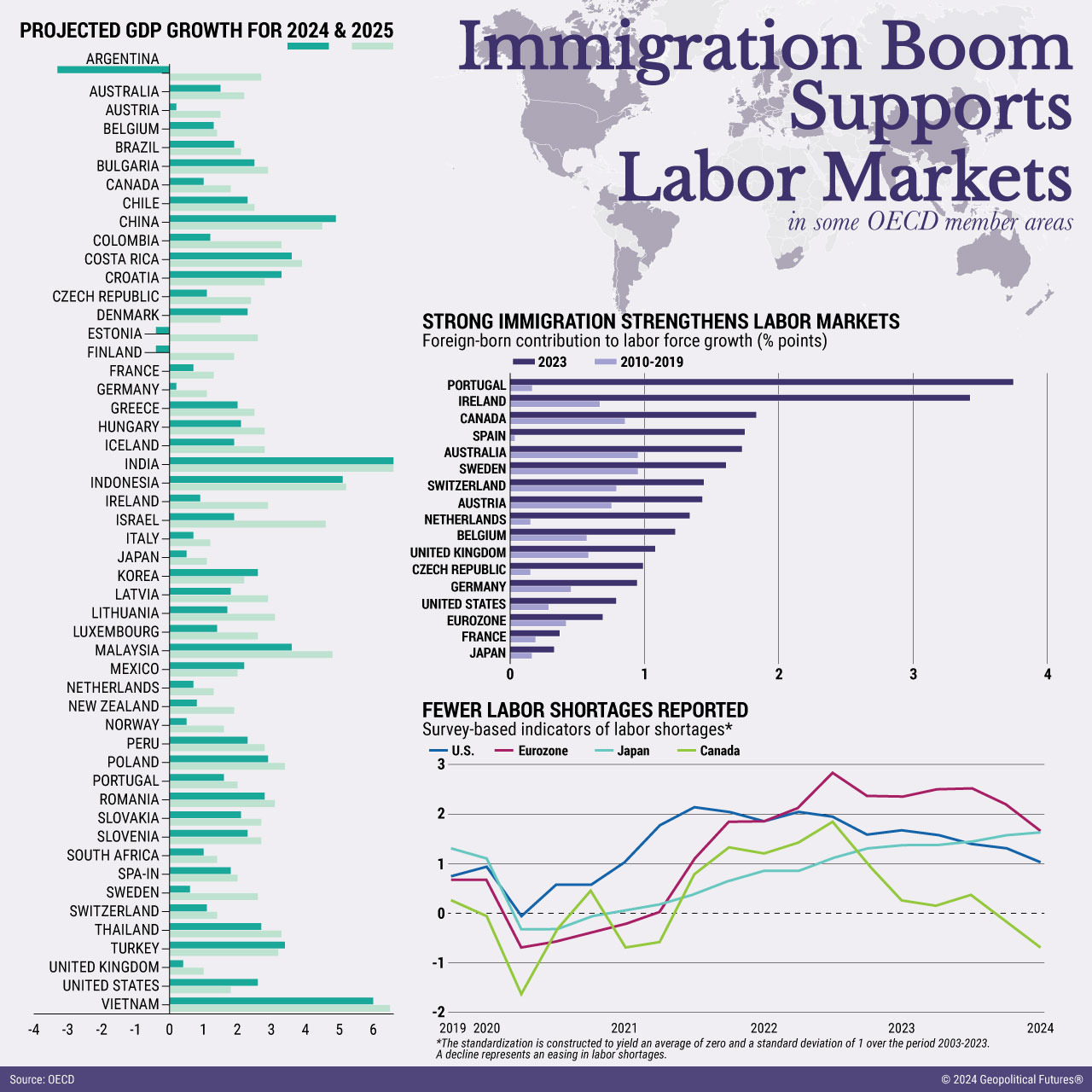Despite modest growth rates, the global economy is giving some cause for optimism, thanks in part to migration, according to the Organization for Economic Co-operation and Development. In 2023, several OECD countries, including the U.S., U.K., Canada and Australia, as well as the European Union, experienced exceptionally large migrant influxes, positively impacting labor supply, stabilizing markets and boosting gross domestic product.
However, migration primarily serves as a lifeline for developed nations. Push factors like humanitarian crises, such as the Ukraine war and conflicts in the Middle East, drive migration from developing countries, while pull factors like labor shortages attract migrants to developed nations. But the boost from migration in developed countries may be short-lived. In order to lower and stabilize long-term inflation, monetary policy is likely to remain tight for some time. Moreover, an influx of immigrants can lead to lower per capita GDP growth and output per worker in destination countries, potentially creating additional strains on developed economies down the road.





